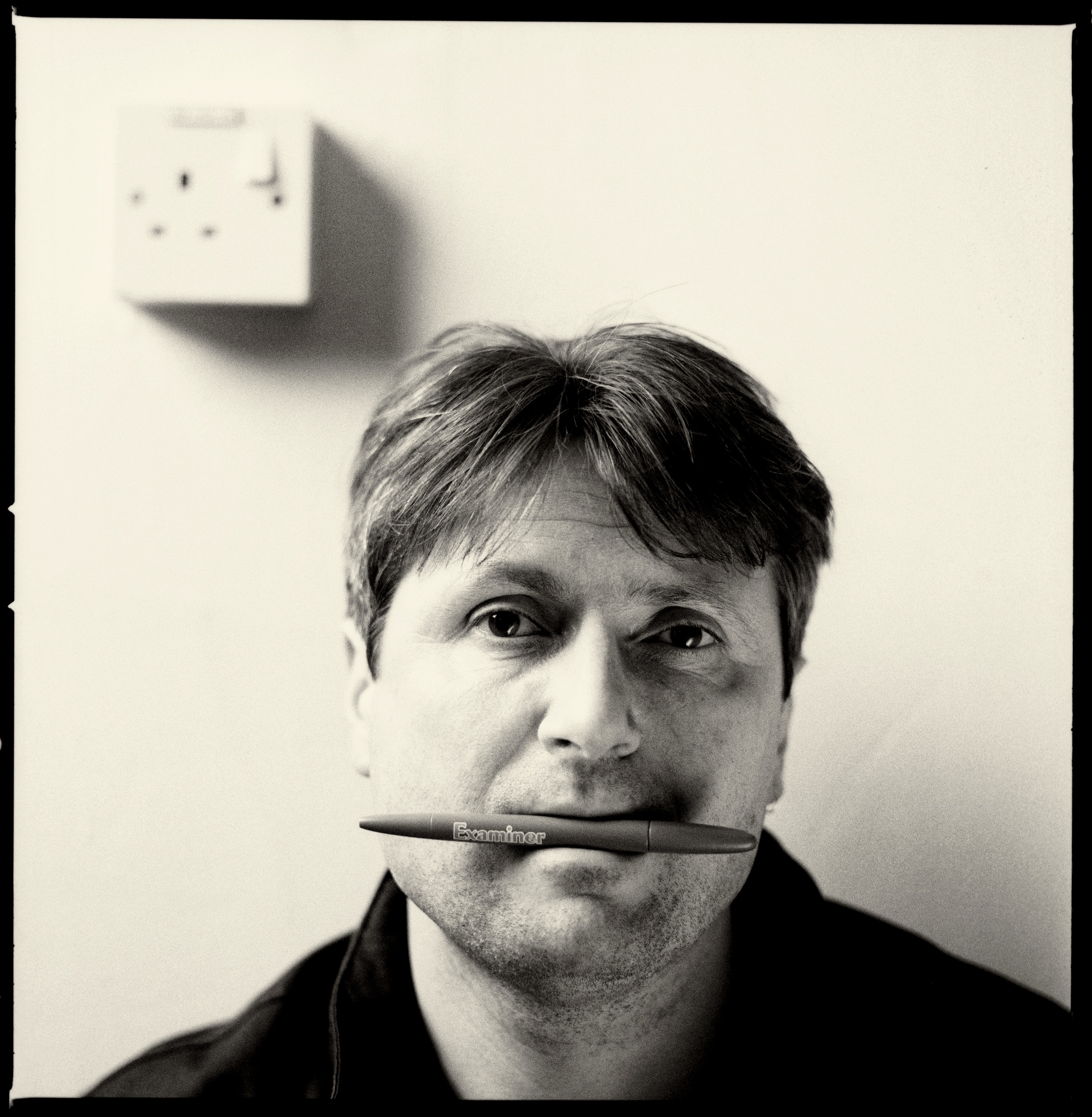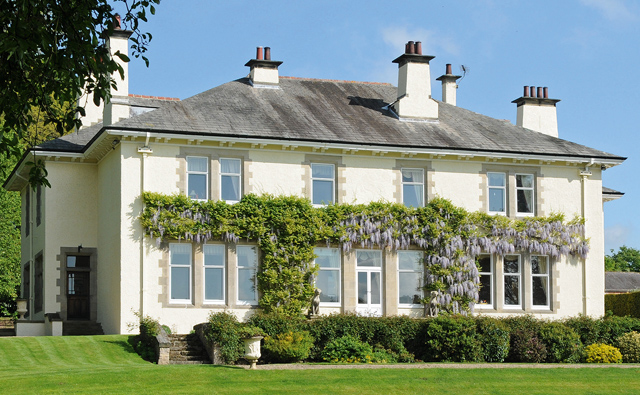In Focus — Poet Laureate Simon Armitage: 'Someone once told me I have a child's eye, probably as an insult, but I took it as an enormous compliment'
Jack Watkins spoke to the Poet Laureate, Simon Armitage, about writing, the environment and refusing to write about Brexit.

From his West Yorkshire eyrie, you would imagine Simon Armitage carefully guarding his status as a detached poetic observer, seldom lacking warmth in his verse, but an outsider all the same. However, he rejects suggestions that he baulked at accepting a position so smacking of establishment approval as the Poet Laureateship, which dates back to 1668, when Charles II appointed John Dryden.
‘There’s a contradiction that comes with any official role in poetry,’ explains the 21st holder of this honorary title, ‘because although I may have an image of myself operating on the margins looking in, I can’t pretend I’m not already established in lots of ways.
‘I publish with Faber, a well-established poetry press, I’ve had big roles at several universities and I do lots of media broadcasting. I’ve been writing in a public way for three decades, trying to see poetry as an act of communication that isn’t merely a restricted code. The Laureateship is an amplification of that approach.’
"The people baying and braying for something wanted to know what I felt about Brexit, and I wasn’t playing that game"
Its obligations appear misunderstood by some, however. When the official Brexit day that never was approached last October, there was an aghast reaction in predictable quarters over Mr Armitage’s failure to ‘rise to the occasion’ with a eulogistic ode. ‘The truth is — I was categorically told this when I was made Laureate — there are no duties, no official expectations. The post is a blank page,’ he says calmly.
‘I had written a long, impressionistic poem about Britain’s relationship with Europe, but they seemed not to want to hear about that. I think the people baying and braying for something wanted to know what I felt about Brexit, and I wasn’t playing that game.’
The Brink, a Sky Arts commission out now, is a 25-minute film he calls a ‘kind of travelogue poem made out of field notes’. In its pondering of the outer face and inner soul of Kent, the closest county to mainland Europe, it links to a proud and powerful British tradition of observational landscape prose and poetry that goes back to J. B. Priestley, W.H. Auden and Sir John Betjeman, as well to the documentary Golden Age of the GPO and Crown Film Units of the 1930s and 1940s.
At the same time, The Brink has a quirky, enchantingly dreamlike overlay that is pure Armitage. ‘Kent’s a part of the world I know little about and I literally got on a train and went down there for two days to research it,’ he says. ‘On both days, I could see France across the water, so I was reflecting on the idea of separation, our clear geographical separation, and the overlapping historical and cultural links that have existed with Europe for a long time.’
Exquisite houses, the beauty of Nature, and how to get the most from your life, straight to your inbox.
Contrastingly, his latest collection of poems, Magnetic Field, is a more personal examination of his own roots in the Pennines village of Marsden. Although he resides five miles away, his parents still live there and it’s clear that, although poetry has given him a passport to distant places and enabled him to build an inter-national profile, Marsden acts, as he says, ‘as a kind of poetic anchor’.
The poems, some newly written, some from his earliest days as a poet in the late 1980s, address themes of family and community, missed opportunities, time passing and images of childhood so vivid they ache with nostalgia.
Others are rich in humour. He can tell a joke against himself and one of the best moments is a passage where, heavily disguised, he joins an imaginary Simon Armitage Trail (turnout ‘woundingly low’) through village and moor.
The family home was a terraced property, its lawn separated from open moor by a privet hedge. Many of the poems have rural or outdoor settings. The Ram talks of putting a wounded beast out of its misery and Two at the End of Winter describes a heron’s movements seen through his father’s eyes.
"My Dad and I used to watch Yorkshire’s score on Ceefax in the living room. If David Bairstow got to 50, we’d stand up and clap"
Yet he describes himself as ‘caught in a flux’ between what some call the real countryman’s existence and the more sanitised version, viewed via an urbanised lens. ‘All of my Dad’s generation had allotments or smallholdings, so even if they weren’t working in agriculture, they had chicken runs, or kept livestock or grew things. But, in 15 minutes by car or train, you’re in Huddersfield, a post-industrial town.’
His affinity with Nature is real, however. ‘I’m not a birdwatcher, but my dad has always been able to look at a bird and say what it is and I’ve taken a similar interest. It’s a bit annoying for my wife and daughter when we go for a walk every night, as we’ve been doing as part of our lockdown regime. There’ll be a conversation about post-structural feminism going on and I’ll suddenly stop, point, and say: “Look! Wheatear!”’
Among his specially penned Laureate poems, Fugitives last year marked the 70th anniversary of legislation paving the way for the UK’s 46 AONBs. He’s also instigated a Laurel Prize for the best published collection of new Nature or environmental poetry. ‘There’s been a growing tone of environmentalism and Nature writing in poetry that’s not been as recognised as it has been in non-fiction,’ he explains.
Philip Larkin turned down the laureateship in his early sixties, partly because the creative wellspring had dried up, but admirers of our current Poet Laureate need have no fears. Mr Armitage is still prolific. ‘I can’t stop writing, whether it’s Laureate poems or, in inverted commas, my own work.
‘I’m 57, perhaps young for a poet. Someone once told me I have a child’s eye, probably as an insult, but I took it as an enormous compliment. Never becoming wise is important. Because the moment you think you’re some kind of sage, or that you know all the answers, you’re probably finished.’
Simon Armitagre's latest collection, 'Magnetic Field: The Marsden Poems', is published by Faber & Faber at £14.99. The inaugural winner of the Laurel Prize will be announced later this year.
On the record: Simon Armitage
On cricket: ‘My Dad and I used to watch Yorkshire’s score on Ceefax in the living room. If David Bairstow got to 50, we’d stand up and clap.’
On the 250th anniversary of Wordsworth, the 11th Poet Laureate: ‘He understood the essential contract between civilisation and Nature.’
On Nature and the lockdown: ‘You can hear the big engines and industries waiting to rev up again. I hope these clear skies, views and clean air are things people want to keep.’

The best country houses for sale in Yorkshire
Penny Churchill says that long histories and tranquil settings make Yorkshire’s country houses irresistible
Toby Keel is Country Life's Digital Director, and has been running the website and social media channels since 2016. A former sports journalist, he writes about property, cars, lifestyle, travel, nature.

